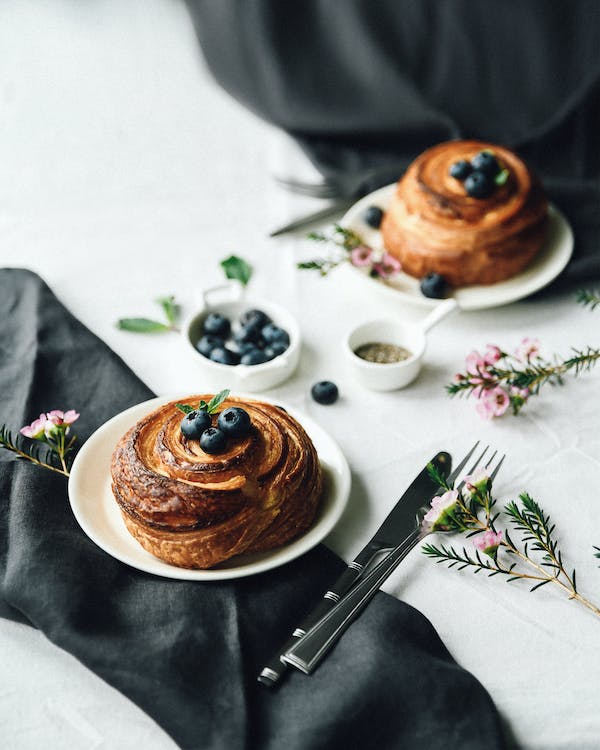-
Use the right ingredients: French pastry recipes often require specific types of flour, butter, sugar, and other ingredients. Make sure to use the right ingredients and follow the recipe closely for the best results.
-
Measure ingredients precisely: French pastry recipes are often precise, so make sure to measure your ingredients carefully using a kitchen scale. Small variations in ingredient amounts can make a big difference in the final product.
-
Chill the dough: Many French pastry recipes require chilling the dough before working with it. This helps to firm up the butter and create flaky, delicate layers.
-
Roll out the dough evenly: When rolling out pastry dough, try to keep it as even as possible. This will help ensure that the pastry cooks evenly and rises properly.
-
Use a pastry brush: A pastry brush is a useful tool for brushing egg wash or melted butter onto pastries. It helps create a glossy finish and ensures even coverage.
-
Make a well in the center of flour when adding liquids: When making doughs or batters, make a well in the center of the flour before adding liquids. This helps to ensure that the liquid is evenly distributed and prevents lumps from forming.
-
Use a thermometer: Temperature is crucial in French pastry making, especially when working with sugar or chocolate. Use a thermometer to ensure that your ingredients are at the right temperature.
-
Practice piping: Piping is a key skill in French pastry making, used to create intricate designs and shapes. Practice piping with a pastry bag and different tips to get a feel for how the dough or cream will come out.
-
Don't overmix: Overmixing dough or batter can result in tough or rubbery pastries. Mix just until the ingredients are combined and stop as soon as the mixture looks uniform.
-
Pay attention to details: French pastry is all about the details, from the shape of the pastry to the texture of the filling. Pay attention to details and take your time to ensure that every aspect of your pastry is perfect.
-
Know your oven: French pastry requires precise baking temperatures and times. Get to know your oven's quirks and make sure to preheat it properly before baking.
-
Use quality equipment: Investing in high-quality equipment, such as a stand mixer or a good set of pastry molds, can make a big difference in the quality of your pastries.
-
Be patient: French pastry requires patience and attention to detail. Take your time and don't rush the process, as this can lead to mistakes and less-than-perfect results.
-
Practice good hygiene: Cleanliness is essential in French pastry making. Make sure to wash your hands and all equipment thoroughly before starting, and keep your work surface clean and tidy.
-
Experiment with flavors: While traditional French pastry recipes are delicious on their own, don't be afraid to experiment with different flavors and ingredients. Try adding spices, fruit, or different types of chocolate to create unique and delicious pastries.
-
Learn from mistakes: Even the most experienced pastry chefs make mistakes. Don't get discouraged if your pastries don't turn out perfectly the first time. Take note of what went wrong and try again, adjusting your technique as needed.
-
Get inspiration: Look for inspiration in cookbooks, online tutorials, and even social media. Follow pastry chefs and food bloggers on Instagram and YouTube for inspiration and ideas.
-
Take a class: If you're serious about mastering French pastry, consider taking a class or workshop. This can provide you with hands-on experience and expert guidance from a trained pastry chef.
-
Share your creations: French pastry is meant to be shared and enjoyed with others. Share your creations with friends and family and don't be afraid to show off your hard work.
-
Have fun: Most importantly, have fun! French pastry is a challenging but rewarding art form that requires passion and dedication. Enjoy the process and take pride in your creations.




